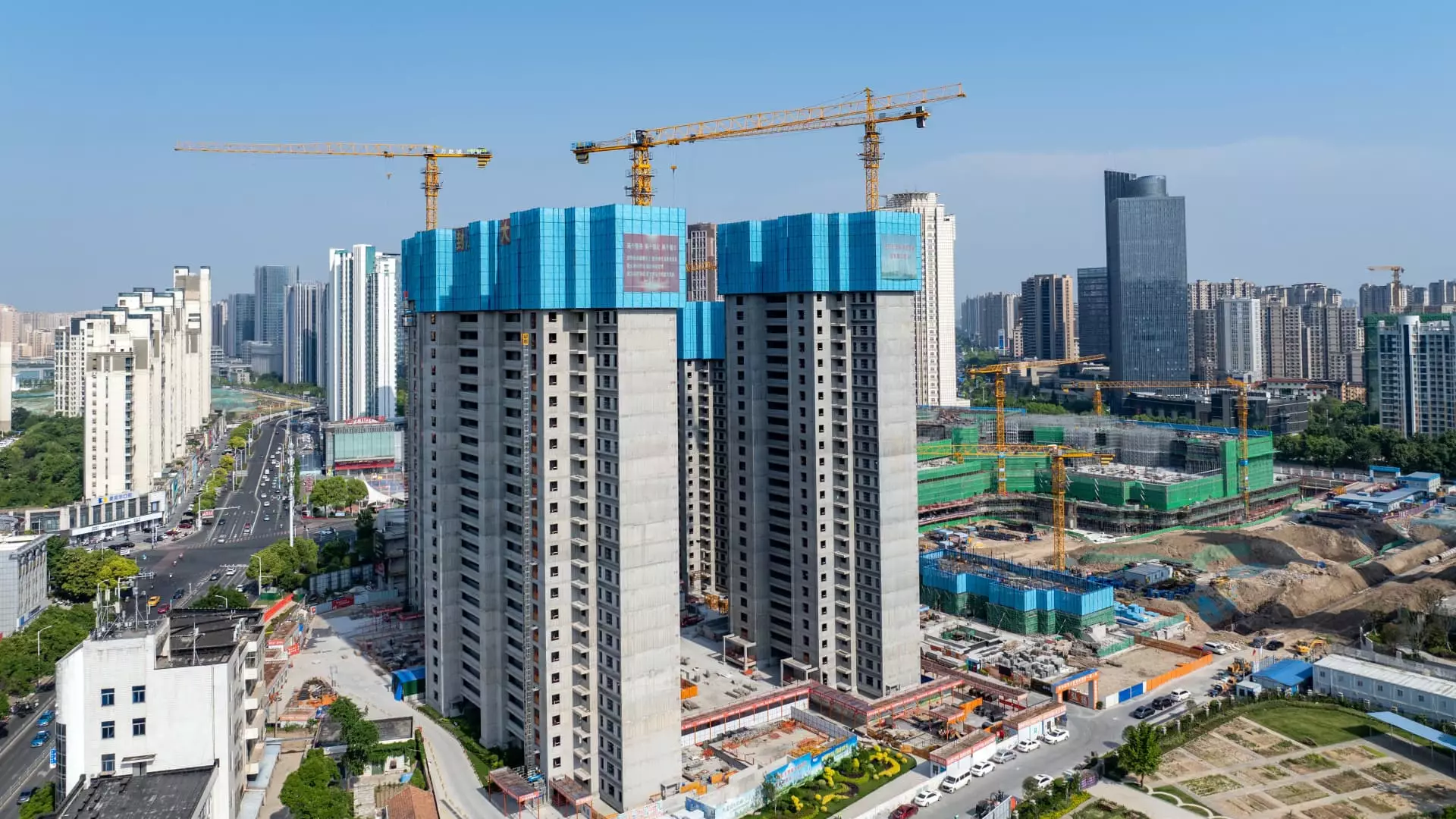China’s recent policies to boost the real estate market have been met with mixed reactions from analysts. Despite the government’s efforts, experts believe that these initiatives will take time to yield concrete results. S&P remains cautious about the situation, stating that the property market is still in search of a stable foundation. Edward Chan, director of corporate ratings, emphasized the significance of the government’s comprehensive policy rollout, indicating a serious commitment to stabilizing the sector. However, he also highlighted the need for an improvement in homebuyers’ demand and confidence, which has been dampened by a prolonged market downturn.
The decision to lower down payment minimums and cancel the floor on mortgage rates reflects the government’s attempt to stimulate demand and improve liquidity in the real estate sector. While these measures have been deemed unprecedented, analysts like Hui Shan from Goldman Sachs believe that they may not be sufficient to address the underlying issues in the housing market. Despite Nomura’s Ting Lu expressing optimism about Beijing’s efforts to tackle the housing crisis, it is clear that more decisive actions may be necessary to achieve long-term stability. The current decline in real estate investment and slower retail sales indicate the challenges faced by the sector.
The majority of household wealth in China is tied to property, making the real estate market a critical factor in consumer spending and economic outlook. Uncertainty about future income and delayed delivery of pre-sold apartments have further eroded homebuyers’ confidence. The prolonged construction process and funding issues have created a backlog of unsold properties, contributing to the current imbalance in supply and demand. As a result, potential buyers are hesitant to enter the market, fearing a further decline in property prices.
Forecasting Future Trends and Challenges
Analysts predict that housing prices in China may continue to decline, with estimates suggesting a significant drop from historical highs. The funding gap for completing pre-sold apartments remains a major challenge, requiring substantial capital investment to address the issue. Ting Lu anticipates that Beijing will conduct a national survey to assess the financial requirements for completing residential projects and restoring confidence in the presale system. Despite the government’s efforts to stabilize the housing market, the road ahead is fraught with uncertainties and obstacles that will test the resilience of the sector.
China’s property market is facing a critical juncture as policymakers strive to navigate through a complex web of challenges and uncertainties. While the government’s initiatives signal a commitment to addressing the housing crisis, the effectiveness of these measures remains to be seen. Analysts emphasize the importance of building homebuyers’ confidence and addressing the fundamental issues that have contributed to the current market conditions. With a cautious outlook on the horizon, stakeholders will need to exercise patience and vigilance in navigating the evolving landscape of China’s real estate sector.

